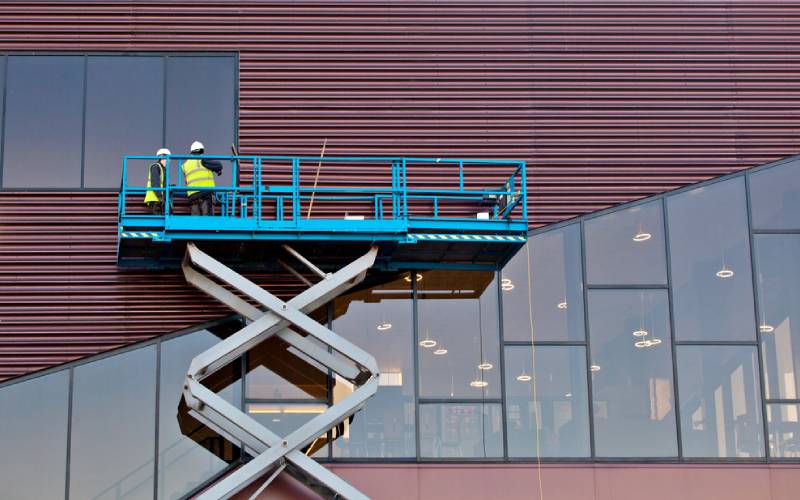Discover the Pros and Cons of Electric and Hydraulic Scissor Lifts
Scissor lifts are a common tool on the job site when work needs to be done in an elevated position. However, there are a plethora of models to select from, and while many of them are comparable, they are not interchangeable. Which one is best for your job site is hard to tell? Choosing between an electric and hydraulic scissor lift is generally the most important consideration when selecting the best one for your construction or maintenance requirements. Prior to making a choice, firms must thoroughly assess their requirements, as each type has its own set of benefits and drawbacks.
Electric Scissor Lifts:
Pros:
Eco-Friendly
Electric scissor lifts have a good reputation for being environmentally friendly. Since they emit no emissions when in use, they are the perfect option for indoor applications where indoor air quality is a problem.
No Noise Pollution
When compared to their hydraulic counterparts, these lifts work far more silently. When working near offices or residential areas or in locations where noise is an issue, this is especially helpful.
Reduced Operating Expenses
Since electricity is typically more affordable than fuel, electric scissor lifts typically have cheaper operating expenses. Furthermore, normal maintenance is frequently less complicated and costly.
Cons:
Limited Outdoor Use
Electric scissor lifts may be less suitable for outdoor applications where a power source is not readily available. Their performance can be impacted by wet or uneven terrain.
Initial Cost
While operating costs are lower, the initial investment for electric scissor lifts can be higher than their hydraulic counterparts. Businesses need to weigh the long-term savings against the upfront expenses.
Hydraulic Scissor Lifts:
Pros:
Sturdy Performance
Hydraulic scissor lifts are renowned for their sturdy construction and capacity for heavy-duty applications. Their exceptional performance in challenging outside conditions is beneficial for construction sites.
Greater Capacity
Generally speaking, hydraulic scissor lifts are capable of carrying more weight than their electric counterparts. They are therefore the best option for jobs requiring the lifting of larger objects.
Versatility
The operating temperature and climatic conditions of hydraulic scissor lifts are broader. Their increased versatility in outside applications makes them appropriate for a range of construction jobs.
Cons:
Emissions
Hydraulic scissor lifts produce emissions during operation, which can be a concern in enclosed or indoor environments. This can limit their use in certain settings where air quality is a priority.
Noise Levels
Hydraulic lifts are generally noisier than electric lifts, which can be a drawback in noise-sensitive areas or when working in close proximity to occupied spaces.
In conclusion, the particular requirements and working conditions of the task at hand will determine which of the two scissor lifts is best. For indoor applications, electric lifts are more economical, quieter, and cleaner than hydraulic lifts; nevertheless, hydraulic lifts are the best machines for severe outside operations due to their stronger performance and larger lifting capability.
For reliable electric scissor lift rentals, look no further than Safest Lift. As a trusted crane rental company in Dubai, we offer well-maintained electric scissor lifts to meet your project requirements.



